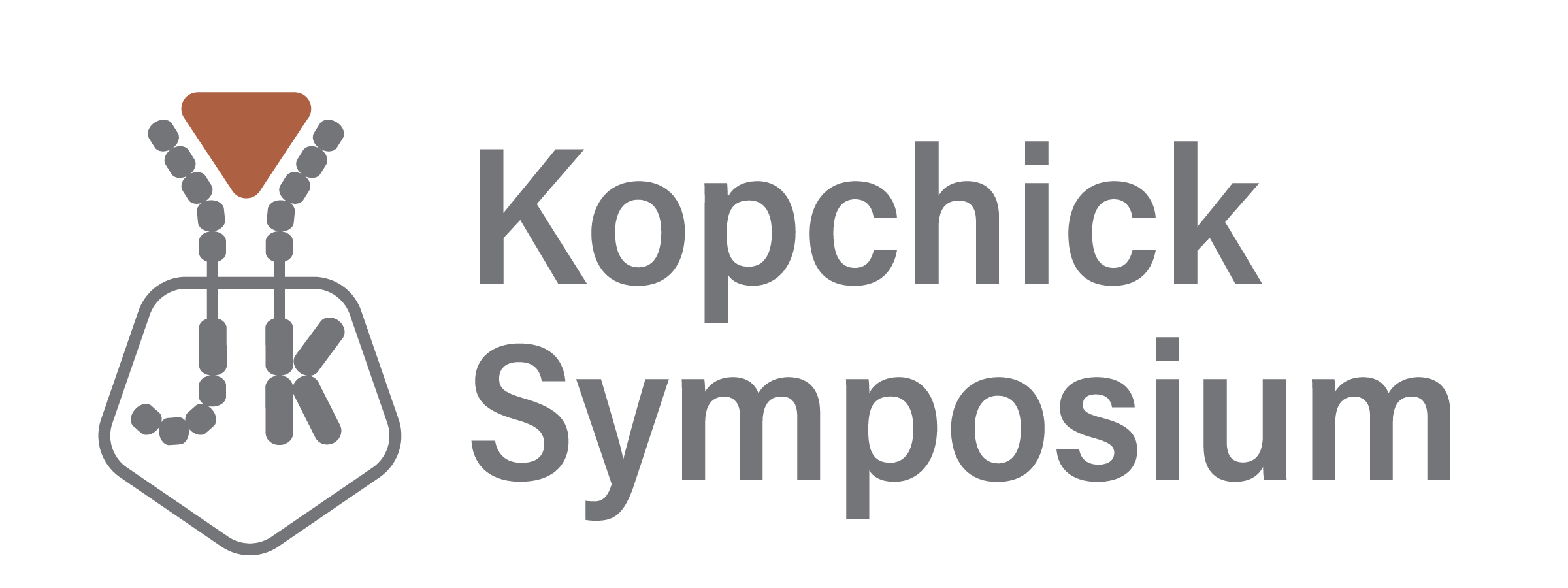-
Prospective Students
-
About the GSBS
- About the GSBS
-
Quick Facts
- Administered by MD Anderson and UTHealth Houston
- Located in The Texas Medical Center (TMC), the world's largest medical center
- Both MD Anderson and UTHealth Houston are accredited by the Southern Association of Colleges and Schools Commission on Colleges (SACSCOC)
- Over 600 faculty members with expertise in the latest biomedical research
-
- MS PROGRAMS
- PHD PROGRAMS
-
MD/PhD PROGRAM
- MD/PhD Program
- Participating Institutions/Entities
-
Student Research Day 2020
-
Admissions
- Admissions
-
Admission FAQs
- What factors are considered in admissions decisions?
- What is the minimum GPA required to apply?
- Do you require interviews?
- When will I be notified regarding interviews?
- What are the application deadlines?
- What if my letters of recommendation are not ready by the deadline?
- How can I get an assistantship?
- How can I get an assistantship if I am seeking a MS degree?
-
Admissions Office
6767 Bertner Avenue
S3.8344 Mitchell BSRB
Houston TX 77030
-
Research
- Research
- Research Interests
-
Student Research Day 2020
- Student Life
-
About the GSBS
- Current Students
- Faculty
- Alumni
- Academics
- Give
- Events
- Map
- Contact Us
-
About the GSBS
About the GSBS
Quick Facts
- Administered by MD Anderson and UTHealth Houston
- Located in The Texas Medical Center (TMC), the world's largest medical center
- Both MD Anderson and UTHealth Houston are accredited by the Southern Association of Colleges and Schools Commission on Colleges (SACSCOC)
- Over 600 faculty members with expertise in the latest biomedical research
-
MS PROGRAMS
Individualized MS Program in Biomedical Sciences
-
PHD PROGRAMS
PhD Programs
-
MD/PhD PROGRAM
MD/PhD Program
Participating Institutions/Entities
-
Admissions
Admissions
Admission FAQs
- What factors are considered in admissions decisions?
- What is the minimum GPA required to apply?
- Do you require interviews?
- When will I be notified regarding interviews?
- What are the application deadlines?
- What if my letters of recommendation are not ready by the deadline?
- How can I get an assistantship?
- How can I get an assistantship if I am seeking a MS degree?
Admissions Office
6767 Bertner Avenue
S3.8344 Mitchell BSRB
Houston TX 77030 -
Research
Research
Research Interests
Student Research Day 2020
-
Student Life
Student Life
Student Organizations

2025 KOPCHICK SYMPOSIUM

Keynote Speaker
Huda Zoghbi, MD
Molecular and Human Genetics Professor
Baylor College of Medicine
Howard Hughes Medical Institute Investigator
'Overcoming Barriers in Science'
2025 Theme
November 3, 2025
7:45 a.m. to 6:15 p.m.
BSRB Onstead Auditorium
See below for poster winners.
Questions? Email the Kopchick Fellows (K-Fels): [email protected]
DETAILS
-
ABOUT
The Kopchick Symposium is hosted by The University of Texas MD Anderson Cancer Center UTHealth Houston Graduate School of Biomedical Sciences, every two years, to highlight the different fields of research being conducted throughout the Texas Medical Center.
Established by GSBS alumnus John J. Kopchick, PhD, and his wife, Charlene Kopchick, this year’s symposium will showcase talks that focus on overcoming barriers in today’s biomedical fields.
The 2025 Kopchick Symposium will feature faculty and student presentations, interactive panel discussions, and a powerful keynote address by Huda Zoghbi, MD, Professor, Baylor College of Medicine, and Investigator, Howard Hughes Medical Institute — a global leader in neuroscience, genetics, and translational research, whose career exemplifies the spirit of this gathering. The symposium will conclude with an engaging poster session and reception.
-
AGENDA
2025 Kopchick Symposium
Onstead Auditorium
6767 Bertner Avenue, 3rd floor
S3.8012 Mitchell BSRB7.45-8.30
Registration and Breakfast
8.30-8.45
Welcome Remarks by Dean
8.45-9.45
Dr. John and Mrs. Charlene Kopchick Session
9.45-10.00
Coffee Break
10.00- 10.45
Beyond the Eureka Moment: The Long Road to Scientific Discovery
- Richard Behringer, PhD: Faculty Research Talk (20 mins talk + 5 mins Q/A)
- Jian Hu, PhD, and Kaylene Lu: PI and Kopchick Fellow Pair (5 mins PI talk, 10 mins student talk, 5 mins Q/A)
10.45-11.30
From Bench to Breakthroughs
- Seung-Hee (Sally) Yoo, PhD, & Mark Burish, MD, PhD: Faculty Research Talk (20 mins talk + 5 mins Q/A)
- Carmen Dessauer, PhD, and Chrystine Gallegos: PI and Kopchick Fellow Pair (5 mins PI talk, 10 mins student talk, 5 mins Q/A)
11.30-12.00
Basic and Translational Research Panel Discussion
- Panelists: Richard Behringer, Jian Hu, Sally Yoo, Mark Burish, and Carmen Dessauer
12.00-1.00
Lunch Break
1.00-2.00
Keynote Session - Huda Zoghbi, MD, Baylor College of Medicine (40 mins talk + 20 mins Q/A)
2.00-3.15
From Big Data to Big Insights
- Jeffrey Chang, PhD: Ethics Talk (20 mins talk + 5 mins Q&A)
- Ken Chen, PhD: Faculty Research Talk (20 mins talk + 5 mins Q/A)
- Nicholas Navin, PhD, and Lei Yang: PI and Kopchick Fellow Pair (5 mins PI talk, 10 mins student talk, 5 mins Q/A)
3.15-3.45
AI Panel Discussion
- Panelists: Jeffrey Chang, Ken Chen, Nicholas Navin
3.45-4.00
Coffee Break
4.00-4.45
The Future of Science: Advocacy and Outreach
- Meagan Choates, MS, CGC: Faculty Research Talk (20 mins talk + 5 mins Q/A)
- Hana Baroudi, PhD, Kopchick Alumnus Talk (15 mins talk, 5 mins Q/A)
4.45-5.15
Advocacy and Outreach Panel Discussion
- Panelists: Meagan Choates and Hana Baroudi
5.15-6.15
Poster Session and Networking Reception (with Refreshments)
-
SPEAKERS
Dr. Behringer’s research explores the molecular and cellular mechanisms that shape mammalian embryonic development and organogenesis. His team investigates reproductive organ differentiation, gene regulatory networks, and evolutionary variations across species, using cutting-edge genetic and comparative approaches. By studying diverse models—including wallabies and bats—his lab uncovers fundamental principles of development and reproduction, advancing insights into congenital disorders and evolutionary biology.
Dr. Hu’s lab investigates neural stem cell biology and the mechanisms driving malignant gliomas and neurodegenerative diseases. Their work focuses on glioma stem cells, immune microenvironment modulation, and strategies to reverse tumor-promoting immune responses. In parallel, they explore novel approaches to restore myelin integrity in demyelinating conditions, aiming to translate basic discoveries into effective therapies for brain tumors and neurological disorders.
Dr. Yoo studies the molecular and physiological mechanisms of circadian rhythms and their roles in health and disease. Her lab uses integrative approaches combining mouse models and molecular tools to uncover how circadian clocks influence metabolism, cardiovascular health, and lung disease. These insights are paving the way for novel chronotherapy strategies to improve treatment of chronic diseases.
Dr. Burish focuses on the intersection of circadian biology and headache disorders, particularly cluster headaches, which exhibit striking daily rhythmicity. His research explores how the brain’s central clock in the hypothalamus influences headache patterns and how circadian-targeted therapies can alleviate symptoms. Through innovative models and collaborations, his work aims to improve understanding and treatment of debilitating headache disorders.
Dr. Dessauer investigates the spatial and temporal regulation of cyclic AMP signaling and its impact on heart function, neuronal activity, and chronic pain. Her lab focuses on adenylyl cyclase and scaffolding complexes such as AKAPs, which govern signal fidelity and specificity. These studies reveal new therapeutic targets for cardiac arrhythmias and neuropathic pain, offering promising strategies to restore normal signaling in disease states.
Dr. Zoghbi’s pioneering research has transformed our understanding of neurodevelopmental and neurodegenerative diseases, including Rett syndrome and spinocerebellar ataxia. Her lab uncovers the genetic and molecular pathways that drive neuronal vulnerability, revealing novel therapeutic opportunities across disorders such as Alzheimer’s and Parkinson’s disease. Through innovative genetics, molecular biology, and cross-species approaches, her work continues to illuminate fundamental brain mechanisms and inspire targeted treatments.
Dr. Chang’s research focuses on decoding complex signaling networks that control cell growth and survival, particularly in cancer. By integrating genomics, computational biology, and experimental models, his team identifies critical regulatory modules and pathways that drive tumor progression. This systems-level approach aims to reveal new therapeutic targets and predictive tools for precision oncology.
Dr. Chen’s lab develops computational and statistical methods to reconstruct cancer genomes and transcriptomes, providing insights into tumor heterogeneity and evolution. Through large-scale sequencing projects and integrative analyses, his team identifies biomarkers for cancer diagnosis and prognosis. Their work bridges biology, data science, and technology to advance personalized cancer medicine.
Dr. Navin is a leader in single-cell genomics, developing methods to study tumor evolution and genetic diversity at single-cell resolution. His lab combines cutting-edge sequencing, cytological techniques, and computational models to map cancer progression and identify key drivers of heterogeneity. These discoveries are shaping new approaches for cancer diagnosis and targeted therapy.
Ms. Choates’ research examines how prenatal genetic testing, including non-invasive prenatal testing (NIPT), is implemented and interpreted in clinical practice. Her work focuses on improving counseling strategies and understanding how genetic information influences patient care. By addressing these critical questions, her research enhances the delivery of personalized and informed prenatal care.
-
ABSTRACT SUBMISSION
Abstract submission for the 2025 Kopchick Symposium is now closed.
Please contact us at [email protected] with any questions.
-
POSTER WINNERS
Congratulations to our 2025 Kopchick Symposium poster competition winners!
Pre-Candidacy:
1st Place - Ha Tran
Tie for 2nd Place - Candise Tat and Wei-Chieh Yu
Tie for 3rd Place - Paula Bender and Tala Noun
Post-Candidacy:
Tie for 1st Place - Sophia Huang and David Won
Tie for 2nd Place - Cara Biddle and Shraddha Subramanian
Tie for 3rd Place - Vicky Chuong and Mariana Najjar
-
CONTACT US
Our team is striving to make your experience as smooth and easy as possible.
If you are having any issues or have questions regarding the Kopchick Symposium
and would like more information, please email us at: [email protected].
One of our associates will get back to you as soon as possible.
Thank you!2025 Kopchick Symposium Organizing Committee
Kaylene Lu – Chair
Chrystine Gallegos – Co-chair
Richa Nayak – Co-chair
Speaker subcommittee:
Peyton High
Pengju Gong
Maliha Munir
Logistics subcommittee:
Ryan Sloan
Stephen Farmer
Kevin LiuBudget subcommittee:
Skylar Gay
Kenzie Peshoff
Dounya Jalloul
Bridgitte Palacios
Communication subcommittee:
Andrew Gillard
Mo-Fan (Elena) Huang
Lei Yang







